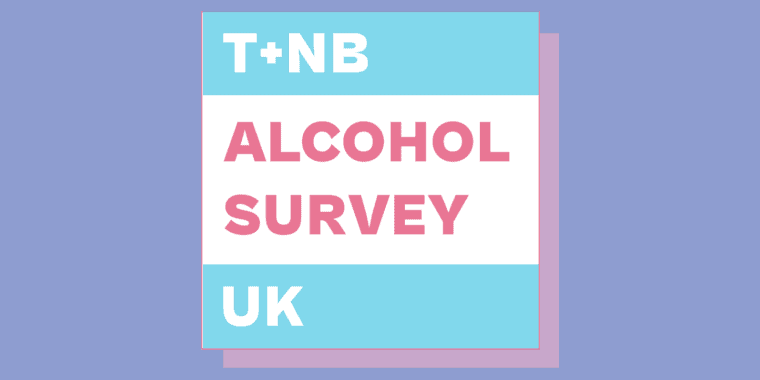
Gender is a socially constructed and multifaceted identity concept existing along a spectrum. Transgender (trans) people are a small minority of the population who identify with genders other than those assigned to them at birth. Cisgender (cis) people identify with their birth-assigned gender. In the United Stated, an estimated 1.2 million and 11% of LGBTQ+ people, collectively termed non-binary, identify outside the binary of male or female with enormous heterogeneity. They may use one or more terms to describe their identity including genderqueer, genderfluid, agender, and may identify as trans, cis, both or neither.
Some research suggests that non-binary people are using alcohol in greater quantities, more frequently and therefore experiencing more harms than people lacking gender minority status. Non-binary people often face discrimination, stigma, escalating hate crimes and dehumanising and sensationalised media reporting. These experiences, alongside a perceived or actual need to conceal their identity can sometimes lead to excessive alcohol use (Hendricks and Testa, 2012; Levefor et al., 2018).
Unfortunately, in the past, researchers have failed to collect data on gender beyond binary sex categories of male/female. We want to change this.
Research from the Global Drug Survey was among the first to investigate non-binary people independent of cis and trans men and women. Among an international sample of people who use alcohol and other drugs, people with non-binary/other identities reported a more than threefold greater likelihood of alcohol dependence, relative to cisgender women*. They also reported a greater unmet need for help to reduce their alcohol use (Connolly et al., 2020) and a greater risk of experiencing sexual violence while under the influence of alcohol (Connolly et al., 2021).
Among the limitations of the existing literature is the absence of UK-based research and there is a greater need for representation of all gender minorities, particularly those existing outside the gender binary. Ongoing research from Oxford Brookes University is endeavouring to fill this gap with a national mixed-methods survey project. This study, which has been led by trans and non-binary people, was launched at the beginning of LGBT History Month with the aim of understanding the following among UK-based trans and non-binary people:
- Subjective benefits and harms of alcohol use
- Motivations for alcohol use, both ‘positive’ (e.g., social cohesion) and negative (e.g., gender dysphoria and gender-based discrimination)
- Experiences of sexualised alcohol use
- Experiences of alcohol reduction or abstinence
- Preferences for alcohol reduction services and other support
A challenge of this study has been accessing and recruiting trans and non-binary people in sufficient numbers to generate robust, actionable results that will do justice to the valuable time given to us by study participants. We have been very fortunate to have gained recruitment support from a number of leading community-led charitable (and other) organisations which serve trans and non-binary people in various ways. We rely on social media platforms such as Twitter to recruit our participants and are motivated to recruit as many people as possible, to ensure that we hear from a group which is diverse in terms of age, ethnicity, sex, gender, sexual orientation and (dis)ability.
We are calling on organisations from across the alcohol use research, policy and clinical practice sectors to support our recruitment efforts. We would be grateful if you can help us to improve representation of trans and non-binary voices in the alcohol use literature by sharing our study on your social media channels, newsletters and other electronic platforms. Help us to determine if current alcohol policies appropriately serve trans and non-binary people.
Our study website can be found here: https://sites.google.com/brookes.ac.uk/alcoholtransandnon-binary/home
The link for survey participation: https://brookeshls.co1.qualtrics.com/jfe/form/SV_0oKcz0lAZVwz3oO
*paper under revision
Written by Dr Dean Connolly, Associate Researcher, Oxford Brookes University
All IAS Blogposts are published with the permission of the author. The views expressed are solely the author’s own and do not necessarily represent the views of the Institute of Alcohol Studies.
